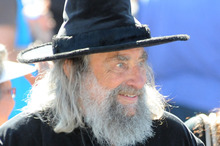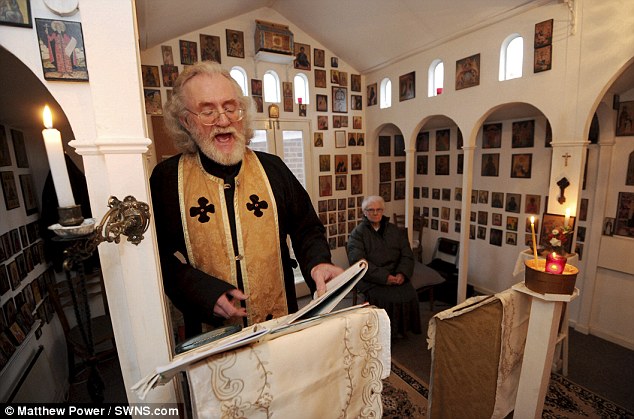From this report, it seems clear that the chief purpose of the Anglican Consultative Council meeting taking place in New Zealand is, at all costs, to steer clear of any discussion that might have some bearing on the plight of the Anglican Communion.
Even worse, the idea that God wishes to convey objective truth to us in the Bible is being replaced by a mushy relativism where no interpretation of what is written is any better than any other.
From Canon Phil Ashey in Auckland, AAC
Dear friends,
I am in Auckland, NZ, at the 15th meeting of the Anglican Consultative Council (ACC15). The agenda moved into high gear today with presentations on “The Bible in the Life of the Church” (BILC), the Network for Interfaith Concerns (NIFCON) Report “Promised Land?”, an Anglican Communion resource for addressing Israeli-Palestinian relations, and the Inter-Anglican Standing Commission on Unity, Faith and Order (IASCUFO) report on The Instruments of Unity.
I believe that the discussion on BILC revealed an important major conclusion that tips the hand of the ACC’s leadership: that the process of how Anglicans interpret scripture is as important as the substance of scripture. Two conclusions will follow from this premise: (1) Context reigns supreme in how people interpret, and in the diversity of interpretations that flow from diversity of contexts NO interpretation is better than another (a point made by the preselected TEC leader of one of the small groups), and (2) There are no “limits” on faithful interpretation (point made by the preselected Church of England rep from another reflection group).
In this discussion, initial enthusiasm for the affirmation of Bible study gave way to sharp differences over the language in the proposed resolution, and then to frustration that there was not enough time to consider the resolution. Finally, the resolution commending BILC for study and use in all Anglican seminaries, parishes and dioceses was sent back to the resolutions committee. I expect they will return to it tomorrow or Monday.
The NIFCON Report on Israeli-Palestinian relations may have brought the revisionist leadership to the brink of futility. Some revisionists felt the language of the report in each of the three sections stating “What all Anglicans can and should believe about XXX” was too magisterial and simply unanglican. Other revisionists felt the report was too pro-Israel. Others felt we had to do something and not wait another three years. Archbishop Williams intervened and confused everybody. Finally, under intensive questioning, Anglican Communion Office (ACO) staff revealed that the report had already been publicly released yesterday in Ireland – so, in effect, the whole conversation was a waste of time.
The process of AAC15 is being intensively stage managed and choreographed by ACO staff. There have been few opportunities for delegates to actually address the body. Plenary sessions moved immediately into regional or reflection groups. In the reflection groups, each group responded to a different question that was designed by the ACC leadership for them to answer. During the Bible in the Life of the Church report-back from reflection groups, an ACO staff member carefully called upon what appeared to be preselected delegates from mostly Global North provinces. Resolutions were presented by PowerPoint on a screen for a vote, and not distributed in advance. There is simmering frustration among many deputies at the near Orwellian manner in which Kenneth Kearon and the ACO seem to be managing this meeting. The bottom line is that the real issues of the Anglican Communion are being completely dodged, especially the failure of the Instruments of Communion to address violations by The Episcopal Church (USA) and the Anglican Church of Canada.
And so the report on the Instruments of Communion was similar – a 10 minute plenary of nothing more than historical background and explanation of the group’s work, moving immediately into reflection groups and evening prayer.
In terms of what schemes seem to be emerging, I would respectfully suggest the following as a “pincer” movement that ACC/ACO is going to place upon confessing Anglicans:
1. Through Continuing Indaba dialogue and stories, bolstered by the work of the BILC resources, Biblical interpretation of human sexuality and its limits will be rendered value-neutral with no limits on Biblical interpretation within the Communion. Lambeth 1.10 will be declared in effect non-binding;
2. Then, through the new Code of Conduct and the Safe Church resolution, any objection to sexual expressions that are not Biblical will be deemed “harassment,” chilling any speech and bringing consequences to those who, in Anglican communion meetings, dare to raise the subject.
I pray I am mistaken, but that is my best look into the future.
Yours in Christ,
Phil+
The Rev. Canon Phil Ashey
Chief Operating and Development Officer, American Anglican Council


 To compound the strangeness of this saga, the
To compound the strangeness of this saga, the  From
From  An Anglican priest in the UK wasn’t happy with the liberal drift of the Church of England, so he has converted his garden shed into a church.
An Anglican priest in the UK wasn’t happy with the liberal drift of the Church of England, so he has converted his garden shed into a church.